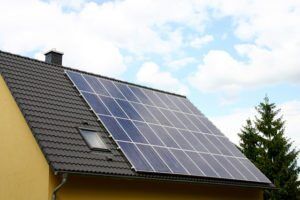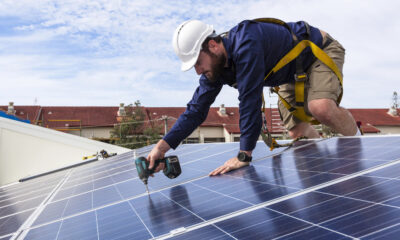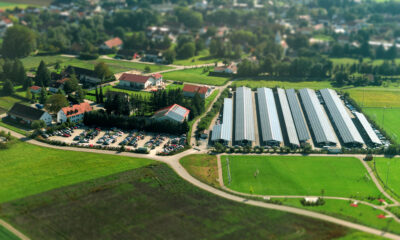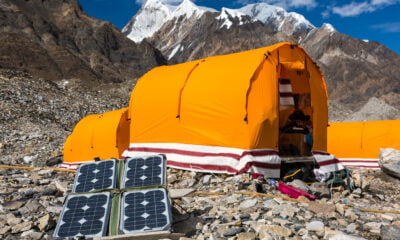

Energy
Common Misconceptions About Solar Panels
Many people with excellent rooftops for solar power miss out on a great opportunity to save money due to common misconceptions about photovoltaic systems. Some of these ideas were only true 20 years ago, some are due to misunderstandings about the technology, and others are downright wrong.
Myth 1 – Solar Panel Installation is Difficult
This was true a pair of decades ago, when the solar industry didn’t exist. However, modern solar panels come in standard sizes and use specially-designed racking to simplify the installation process.
A qualified solar contractor can finish the installation in just a few days, or even less than one day if the system is small. In addition, many states have streamlined the necessary paperwork, speeding up the installation process. You can get in touch with the best solar installers near you at http://www.solar-nation.org.
Myth 2 – There are Hidden Costs You Can’t Predict
Just like myth #1, this was true in research projects, when solar power was still being developed. However, the modern solar industry operates like clockwork, and the costs of a PV system have practically been standardized.
If you’re installing a residential solar system, you can expect to pay between $3000 and $4000 for each kilowatt of capacity, before deducting any applicable rebates and tax incentives! Prices vary by project and by location, but it is unlikely that you will fall outside that range.
Myth 3 – Everyone Can Install Solar Panels
Perhaps one of the best pieces of advice we can give you is to hire professionals for the job. A do-it-yourself project may seem cheaper, but can end up being much more expensive when you consider the time required and the risks involved.
Hiring a qualified and licensed contractor offers plenty of advantages that make the extra cost negligible:
– You save plenty of hours on paperwork, because solar installers are familiarized with local regulations.
– You can rest assured that the PV system will not pose a fire hazard, and that all manufacturer warranties will apply.
In fact, the installation of photovoltaic systems by non-qualified individuals is illegal in most places; and even if it was legal, the risks far outweigh the benefits.
Myth 4 – Energy Storage is Needed for Solar Power
This is only true if your solar PV system is installed at a remote location, where there are no power lines nearby. For systems located in urban areas, there is a scheme called net metering, which lets you forget about batteries completely:
– If your PV system is producing more energy than what your household needs at the moment, you can export the surplus to the local power grid.
– The surplus energy accumulated over a month becomes a credit on the next utility bill, or it may be paid back to you in cash by the utility company.
Net metering laws vary by state and by utility company, but the main goal in all cases is to spare you from purchasing expensive energy storage.
Myth 5 – Solar Power is Expensive
This is another idea that was true a few decades ago but no longer holds. It would be more correct to say that solar power involves a high initial investment, but in the long run it’s cheaper than buying all of your energy from the grid!
The other factor to consider is that there are now excellent financing options for solar power: you can take a low-interest loan to purchase the PV system, and then pay it off completely with energy savings. Alternatively, you can lease the PV system from a third party, paying a monthly fee that is smaller than your energy savings. With both options, you can go solar for zero cash down!


 Environment12 months ago
Environment12 months agoAre Polymer Banknotes: an Eco-Friendly Trend or a Groundswell?

 Features11 months ago
Features11 months agoEco-Friendly Cryptocurrencies: Sustainable Investment Choices

 Features12 months ago
Features12 months agoEco-Friendly Crypto Traders Must Find the Right Exchange

 Energy11 months ago
Energy11 months agoThe Growing Role of Solar Panels in Ireland’s Energy Future



























